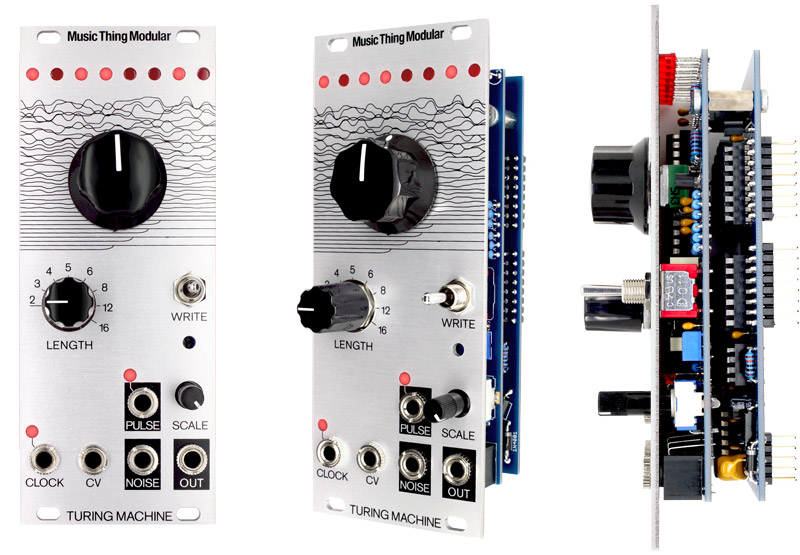Since it was launched in June 2012, the Turing Machine has become one of the most popular Eurorack DIY projects. It is a random looping sequencer that spits out basslines and melodies. It generates strings of random voltages that can be locked into looping sequences. These sequences can be allowed to slip, changing gradually over time. This module was inspired by the long history of shift register pseudorandom synth circuits, including the Triadex Muse, Buchla 266 Source of Uncertainly and Grant Richter’s Noisering.
This video explains how the Turing Machine works.
The 2016 revised Turing Machine has many improvements:
- Rotary loop length switch
- Pulse out
- Two boards, includes Backpack circuit to drive expanders (compatible with old Music Thing expanders)
- Easier to build: a larger PCB in the same width, clock and noise circuits are more robust
- Noise level trimmer & reduced voltage in noise circuit to make circuit more robust with different noise transistors
- Compatible with existing expanders
“I am interested in perceptible processes. I want to be able to hear the process happening throughout the music.To facilitate closely detailed listening a musical process should happen extremely gradually.” Steve Reich, Music as a Gradual Process, 1968.
Status:
April 2016: Design files and Gerbers tested and prototyped successfully
License:
CC-BY-SA
